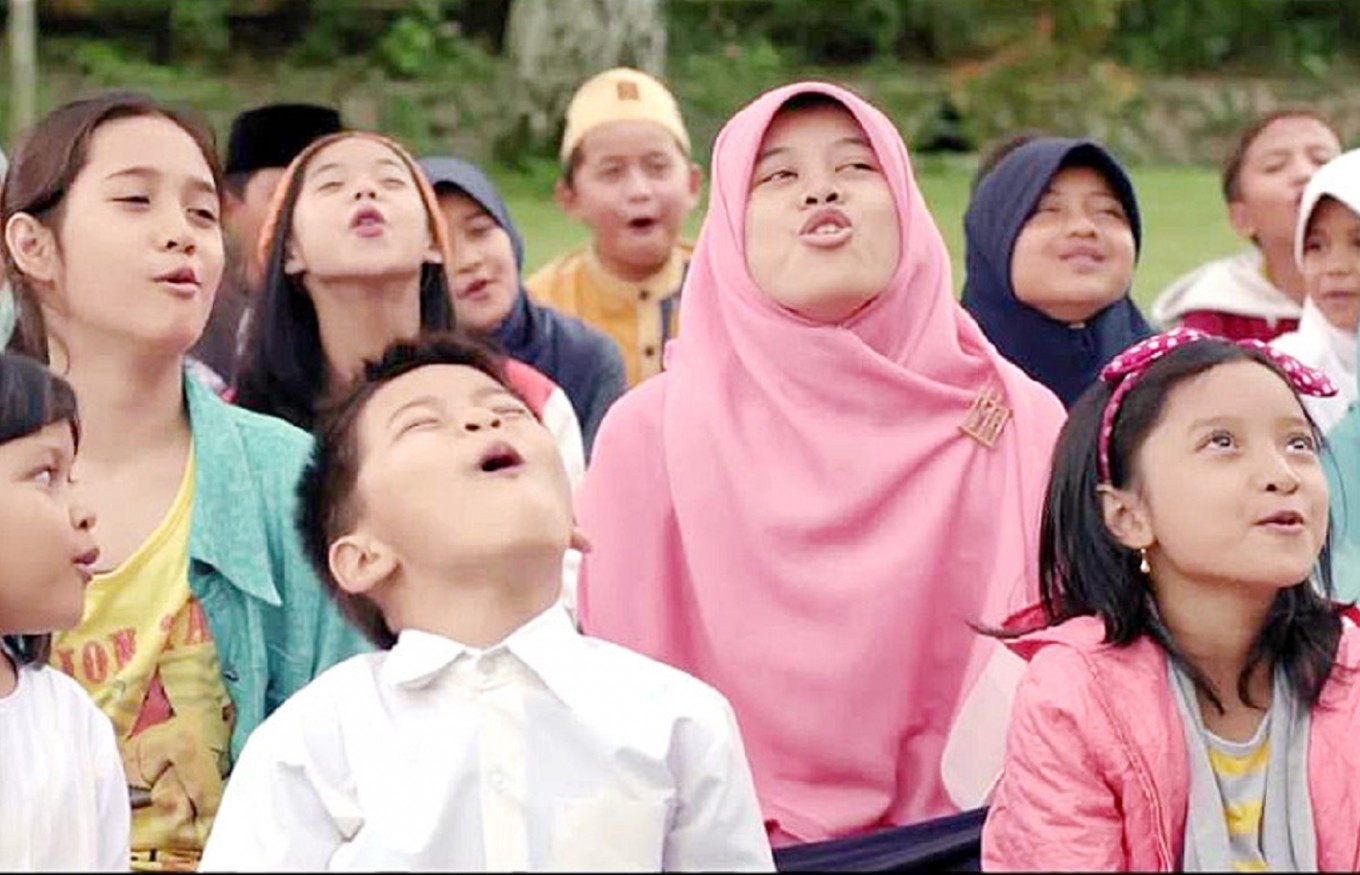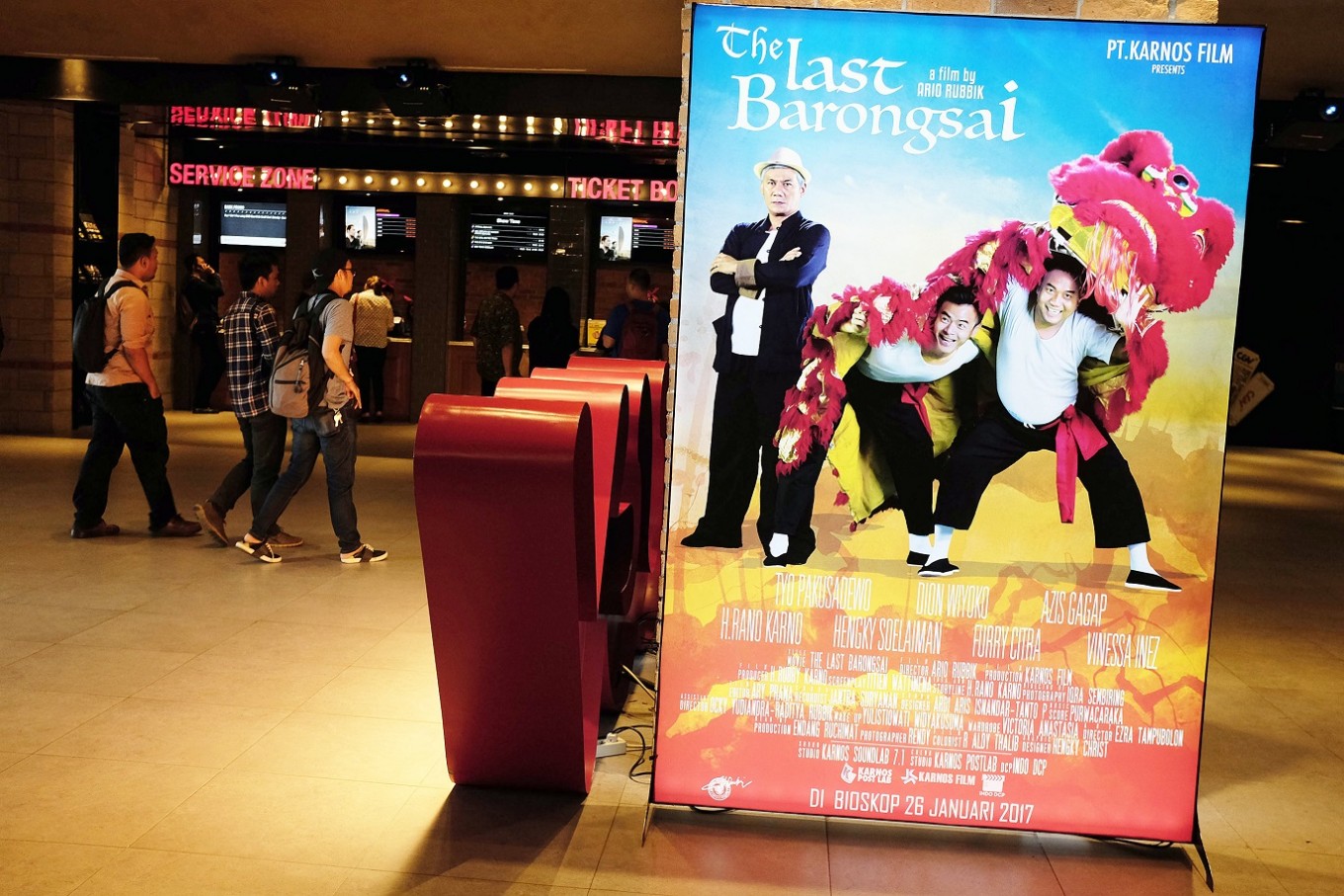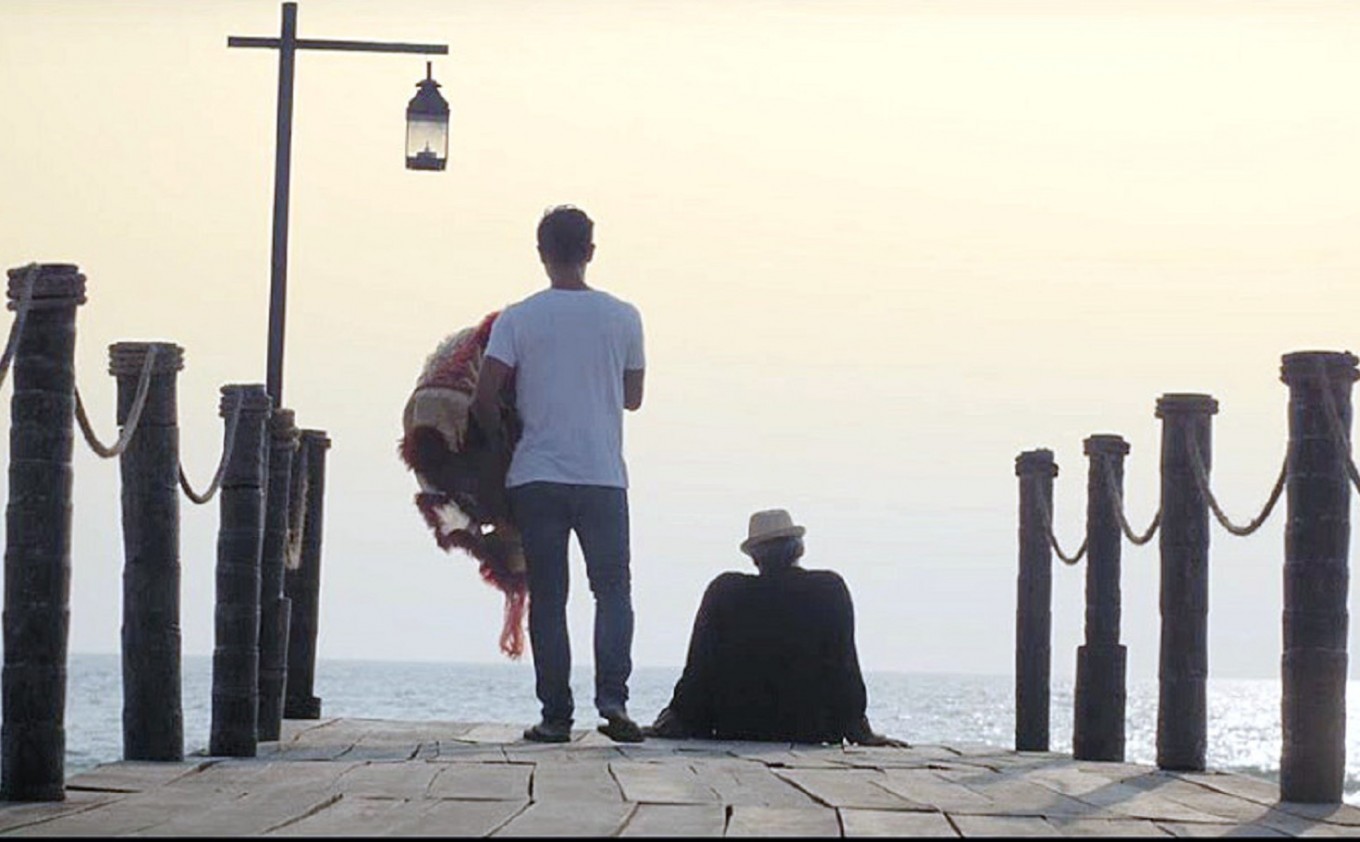Popular Reads
Top Results
Can't find what you're looking for?
View all search resultsPopular Reads
Top Results
Can't find what you're looking for?
View all search results'The Last Barongsai', 'Iqro' deconstruct deeprooted mindsets
Change text size
Gift Premium Articles
to Anyone
T
wo Indonesian productions released last Thursday a look at the stars and at what’s beneath, straightening up deep-rooted mindsets about the shape of the Earth and the stereotyping of people and cultures.
Not an easy issue to begin with, these two movies pull it off by presenting their arguments in an entertaining way. Even long after their screening time at theaters will they be referred to as the first effort to capture the confusion among Indonesians and provide answers, no matter how blunt or vague.
(Read also: Wiji Thukul: A film alone won't be enough)
'The Last Barongsai'
The English title is obviously meant to catch the attention of millennials. They are represented by the young characters at the center of the film, who want to preserve the Chinese culture’s barongsai (lion dance) performance.
The Last Barongsai is produced by Karnos Film — from the Karno family, one of whom, Rano Karno, is the governor of Banten.
Set in present day in Tangerang, the capital of Banten province that borders Jakarta, the film follows a lower-class family of Chinese descent. Family head Kho Huan (Tio Pakusadewo) refrains from performing the acrobatic lion dance, because the family business that has been passed down for generations failed to earn him enough money to save his wife’s life.
(Read also: Tolerance high over Chinese New Year in Indonesia)
 Winning expression: Children act in Iqro.(Masjid Salman ITB and Salman Film Academy/File)
Winning expression: Children act in Iqro.(Masjid Salman ITB and Salman Film Academy/File)
His son Aguan (Dion Wiyoko), however, sees reviving the lion dance troupe and taking part in a competition for prize money as the only way for him to get the money he needs to study in Singapore. The conflict revolves around the argument that barongsai is not a street performance but rather a rite that can only be performed for special celebratory events.
Directed by Ario Rubbik and written by Titien Wattimena, Rano Karno also appears in the film as Haj Udin, a Muslim who represents the tolerant face of Islam in the neighborhood. Comedian Azis Gagap performs well in the film as a non-Chinese in the troupe, who sees barongsai as a vital part of Indonesia’s cultural mix. Despite the festive spirit of the lion dance and the competition, the film is too gloomy visually, and the conflict is not strongly presented outside of the dialogue. But it’s good enough at getting across its messages about co-existence and the importance of preserving cultural heritage.
'Iqro'
Iqro, the first word in the Quran, means “read”, a call for people of faith to find in the holy book the answers to any scientific queries, so as not to be lost in the boundless sky.
Although the family movie is based on Islamic teachings, it sends out universal messages on being tolerant without compromising and on ignorance and greed having no place on Earth.
 Don't miss it: People pass by the movie poster for The Last Barongsai.(JP/Jerry Adiguna)
Don't miss it: People pass by the movie poster for The Last Barongsai.(JP/Jerry Adiguna)
Through the eyes of the child Aqila (Aisha Nurra Datau), who aspires to become an astronomer like her grandfather (Cok Simbara), the viewers are led to see that religious teachings are not in conflict with science and, as history has recorded, are a source of inspiration for Muslim scientists.
“The verse that says how daylight is replaced by night is proof that the Earth is not flat,” says Professor Wibowo, Cok Simbara’s character.
The narration on how Islamic teachings should be delivered and applied in daily life is wrapped up in a controversy about the Bosscha observatory in Bandung, West Java. The observatory is concerned about a plan to build a resort hotel further down the hill, because of the light pollution it may cause.
 I got your back: A scene from The Last Barongsai.(Karnos Film/File)
I got your back: A scene from The Last Barongsai.(Karnos Film/File)
The child characters in the movie set an example of peaceful conflict resolution, including on how to treat other people well and that differences don’t matter much among friends.
This film shows how humble a human being is before the majestic universe. Produced by Salman Film Academy, a production house under the management of the Salman Mosque of the Bandung Institute of Technology (ITB), the film also offers superb visual graphics.
Iqro, whose pre-production started in 2015, was written by Aisyah A. Nasution and is the debut for director Iqbal Alfajri.
If you plan to watch it, don’t get up from your seat too soon, because the ending is the most important part of the whole movie, and, unfortunately, it is placed after the credits.











